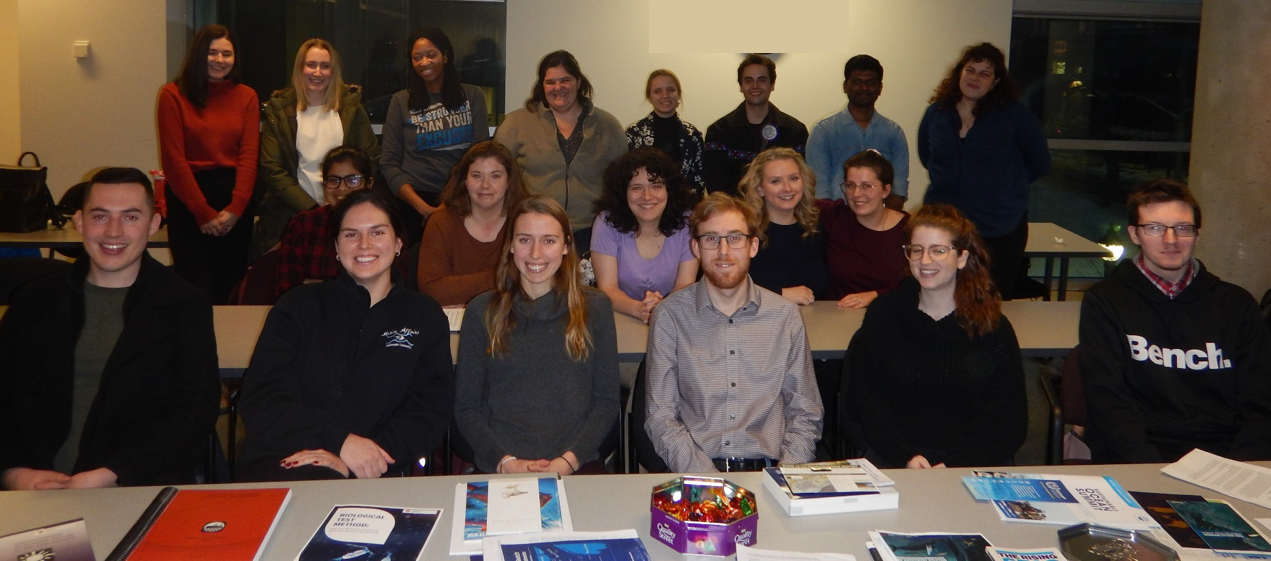The scheduling of the graduate course, “Information in Public Policy and Decision Making,” offered by the Dalhousie University School of Information Management could hardly be more timely or important. Troubling as the COVID-19 pandemic has been, as the virus infiltrated countries and caused havoc around the globe, it presented an exceptional case for students to consider in the midst of a course about the role(s) of information in decision making. While it did not take the pandemic to highlight the importance of evidence for informing decisions, the disease certainly shone a spotlight on the variation and complexity of decisions processes employed by both political leaders and citizens generally. As Sir Peter Gluckman, Chair of the International Network on Science Advice to Government, noted in a recent blog post: “What is striking is the diversity of decisions that have been made in different jurisdictions from early and total lockdown to the imposition of social restrictions….Different jurisdictions have very different ways by which evidence is brought to the policy and political tables” (Gluckman, 2020).
Launched in 2013, as an extension of the research conducted by the Environmental Information: Use and Influence program, the course has now been offered seven times. Each iteration has attracted a multidisciplinary cohort of graduate students from five or six programs (e.g., Interdisciplinary PhD, Law, and Masters programs in Information Management, Public Administration, Environmental Studies, Resources and Environmental Management, Marine Management, Engineering, Electronic Commerce, and Health Administration).
Evidence-informed decision making gained prominence in governance circles in the 1990s and has been the subject of a growing body of literature on research and practice over the past two decades (Boaz et al., 2019). Thus, this course involves immersion in that literature, consideration of major topics about evidence-based policy development, and how the subject is applied in national and international contexts. The topics include characteristics of the science-policy interface, information pathways, enablers and challenges in the communication of information at the interface, and methods of measuring use and improving use of evidence in decision-making.
The students completed assessments of existing policies, noting particularly how research-based information informed the preparation of the policies. They also prepared a briefing memo for a policy context or a letter to the media that aimed to explain a scientific issue to non-technical audiences.
Blog Posts on Recent Literature about the Science-Policy Interface
During the term, the students worked in assigned teams to present seminars based on recent literature on the course themes. These seminars resulted in informative blog posts, which outlined key findings from this literature, as follows:
“Information Production and Selection in Development of Effective Policies,” by Ally Patton, Kyle Doucette, and Shannon Faires
“Pathways and Models: Recent Literature on Communication of Research Information,” by Cali Kehoe and Mikyla Bartlett
“Enablers and Barriers in the Communication of Research Information for Policy Development,” by Matthew Cawood and Catherine Thompson
“The Role of Public Consultations and Public Advisory Processes in Decision Making,” by Mary Macgowan and Mohan Raj Manohar
“Disinformation, Misinformation, and Decision Making,” by Cora-Lynn Munroe-Lynds and Jean-Luc Lemieux
“Challenges in Measuring the Use and Influence of Research-Based Information,” by James Ledger and Lauren Skabar
“Improving Use of Research-Based Information in Policy Contexts,” by Sara Lawlor and Tamanna Moharana
Knowledgeable Suite of Guest Speakers
In each offering of this course, a suite of experts, both local and further afield, is invited to join classes and interact with the students. The eleven guests who participated this term illustrate the breadth and depth of experience brought to bear in the course.
Dr. Kevin Quigley, Director of the MacEachen Institute on Public Policy and Governance, Dalhousie University (expert on risk in public decision making)
Dr. Peter Wells, retired research scientist, Environment Canada, Halifax (extensive experience working at the science-policy interface in environmental monitoring, nationally and internationally)
Shelley Denny, Dalhousie Interdisciplinary PhD student, and Director of Aquatic Research and Stewardship, Unama’ki Institute of Natural Resources, (First Nations expert on indigenous knowledge and decision making)
Dr. Kimberly Girling, Executive Director of Evidence for Democracy, Ottawa (joined the class via Skype from Ottawa to speak about her recent study of information seeking and use by Members of Parliament)
Curtis Martin, Projects and Communications Coordinator, Ocean Frontier Institute, Halifax (spoke about his recent study on individual and NGO science communicators use of Twitter and Instagram)
Dr. Isabelle Caron, School of Public Administration, Dalhousie University (expert on the use of policy briefs in government decision-making processes)
Dr. Jeff Hutchings, Department of Biology, Dalhousie University (senior scientist with extensive experience in providing fisheries advice to government, formally and informally)
Dr. Janice Graham, Departments of Pediatrics and Sociology/Social Anthropology, Dalhousie University (expert on pharmaceutical approval and decision processes within Health Canada, and global use of vaccines)
Daniel Cressey, senior science journalist with Nature, now Deputy Editor of Research Fortnight, London (joined the class via Skype from London to speak about his experience as a journalist writing about science subjects relevant to public policy)
Prof. William Lahey, President, University of King’s College, Halifax (legal scholar, experienced in heading major public consultations, e.g., on aquaculture and forestry, and former Deputy Minister in the NS government)
Rachel Bailey, Mayor of Lunenburg, Nova Scotia (experienced politician, who provided insights about using information/evidence from the perspective of a decision-maker)
The course also adapted to current events with COVID-19 becoming a common discussion subject as we followed the media reports on these events. We discussed questions about whose evidence mattered as we noted the rapid roll-out of research reports on the characteristics and effects of the virus and the steps taken to promote open publications and open science. We observed the variety of pathways that multiple sources of information took, including the spread of misinformation and disinformation that complicated the information landscape. We watched as decision makers around the world grappled with how to respond in the evolving scenario. The abrupt move to online classes in March when the university closed on-campus activities highlighted how evidence can inform policy. COVID-19 was a massive “real-time” illustration of the course themes and some students pivoted to focus their major paper on the information aspects of the pandemic.
In the delivery of this course about evidence-based decision making, examples can often be drawn from ongoing activities around the world to illustrate this complex phenomenon. Although undesirable, the COVID-19 pandemic served as an example for demonstrating the multi-faceted and dynamic nature of the science-policy interface. This global problem presented a surfeit of issues to ground discussion of theoretical concepts on evidence-based decision-making in unsettling reality.
References
Boaz, A., Davies, H. T. O., Fraser, A., & Nutley, S. M. (Eds.). (2019). What works now?: Evidence-informed policy and practice. Policy Press.
Gluckman, P. (2020, May 12). Reflections on the evidentiary-politics interface. International Science Council Blog. Retrieved from https://council.science/current/blog/peter-gluckman-reflections-on-the-evidentiary-politics-interface/
Authors: Bertrum H. MacDonald and Suzuette S. Soomai

